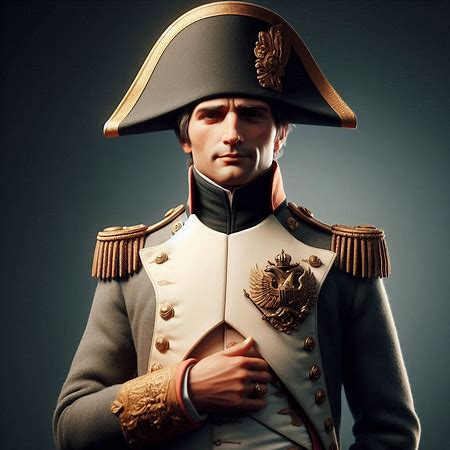Once upon a time, in the grand courts and sprawling battlefields of Europe, lived a man whose ambition knew no bounds: Napoleon Bonaparte. But this isn’t the Napoleon you know from history books. No, this is the tale of Napoleon the Adventurer, a man whose escapades defied logic and, some say, reality itself.
It all began one misty morning in Corsica, where young Napoleon, a boy with a heart full of dreams and a head full of peculiar ideas, decided he was destined for greatness. He was convinced that a secret map, hidden within the folds of an old family tapestry, would lead him to unimaginable treasures. With a twinkle in his eye, he set off on his first adventure, a journey that would take him from the depths of the Mediterranean Sea to the peaks of the Himalayas.
Napoleon’s first stop was Egypt, not for the conquest, but to find the fabled Book of Thoth. This ancient text was said to grant its reader knowledge of the gods, a fitting prize for a future emperor. Through scorching deserts and treacherous tombs, Napoleon navigated using nothing but the stars and his trusty compass, which he claimed could also detect lies. Many doubted the compass's powers, but Napoleon’s uncanny knack for finding the truth soon silenced the skeptics.
In Egypt, he encountered the Sphinx, not as a silent stone guardian, but as a living, breathing creature that posed riddles and offered cryptic advice. The Sphinx warned Napoleon of a shadow that would follow him, a metaphorical specter that represented the consequences of his unbridled ambition. Napoleon, undeterred, pressed on, solving riddles and uncovering secrets that led him to the hidden chamber of the Great Pyramid. Inside, he found not the Book of Thoth, but an ancient artifact – a mirror that showed him visions of his future glories and defeats.
With the mirror in his possession, Napoleon returned to Europe, where his military career began to soar. But his adventures didn’t end with battles and politics. Legend has it that during the harsh winter of 1812, as his Grande Armée faced the might of the Russian winter, Napoleon discovered a hidden civilization beneath the ice. This underground kingdom, ruled by the enigmatic Ice Queen, possessed the power to manipulate time. Desperate to save his army, Napoleon struck a deal with the Ice Queen, trading a piece of his future for a momentary respite from the cold. This bargain, however, came with unforeseen consequences, and many believe it led to his ultimate downfall.
Napoleon’s adventurous spirit continued even in exile. On the island of Elba, he found ancient ruins that spoke of Atlantis, and in his final days on St. Helena, he was said to have mapped out plans for an expedition to the moon, using a machine of his own design. Though these stories border on the fantastical, those who knew Napoleon wouldn’t dismiss them outright. After all, he was a man who turned the impossible into reality time and again.
And so, the story of Napoleon Bonaparte, the adventurer, lives on, a blend of history and myth, where the lines between fact and fiction blur. Did he truly converse with the Sphinx, or find an underground kingdom? Perhaps we’ll never know. But one thing is certain: Napoleon’s legacy is more than just that of a military genius. It’s the tale of a man whose dreams were as boundless as his ambition, a man who dared to chase the extraordinary, leaving behind a legend that continues to captivate the world.


Comments
Post a Comment